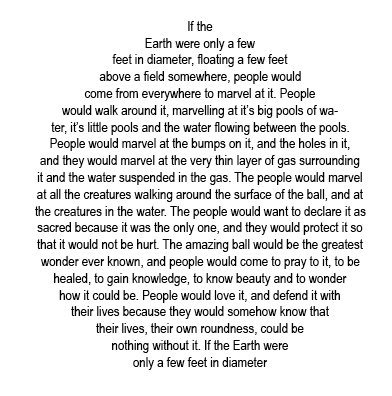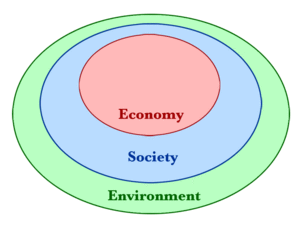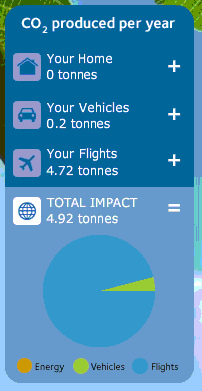SUSTAINABLE TOURISM
Sustainability is often perceived as a complex concept to understand and it can be hard for businesses to discover the benefits it offers. In essence, sustainability is about meeting the needs of today, without adversely impacting on the needs of tomorrow. As a term it can be applied across a range of areas, such as the environment, society and the economy. Ministry of Environment
|
This 15 credit course will introduce you to sustainability within a tourism context. It will look at the responses of tourism businesses to the global and domestic sustainable challenges faced by the tourism industry at present and into the future. The College of Enterprise and Development will be running this course from 16 February 2016. Read the course guide to gain a better understanding of the requirements of the course - the learning outcomes are listed below.
|
Contents
Learning Objectives
- Introduce sustainability in a tourism context
- Identify and analyse existing practices of sustainability within the tourism industry
- Using a systems approach introduce and maintain sustainable tourism concepts into a tourism business
Introduction to Sustainability
What is sustainability?
“Every human has a fundamental right to an environment of quality that permits a life of dignity and well-being” United Nations Conference on the Human Environment, Stockholm
Toitü he whenua, whatungarongaro he tangata. Translation: Land is permanent, man disappears.
So what is it we're trying to sustain? The land? The economy? Our species?
- In pairs brainstorm ideas on what sustainability is. In a brainstorm everything is written down, everyone’s ideas are valid, nothing is right or wrong, it’s simply a brainstorm used to explore and generate ideas.
The following slide show that also contains some well known, often quoted definitions of terms used in conjunction with sustainability
Sustainability is a popular yet complex word that is often banded around freely, but what does it actually mean? Probably the most frequently quoted definition of sustainability is:
"Development that meets the needs of the present without compromising the ability of future generations to meet their own needs" (Brundtland, 1987)
Now watch the Story of StuffDiscuss this in groups. What really hit home for you? What do you question about the movie? Does it make you want to explore the area further? We can then discuss in class.
Look at Otago Polytechnic's sustainable practice.
Sustainable Tourism
What is sustainable tourism? In a travel/business context? How does it work? Here are some termsclosely related to sustainable tourism.
Just what is the sustainable tourism strategy for New Zealand? What are some of the identified challenges facing tourism globally and nationally?
Changes at the global level include:
• growing concern about the impact of travel on climate change
• greater use of the internet and online bookings
• higher fuel prices
At the domestic level, the industry faces challenges in:
• recruiting appropriately skilled staff
• becoming more environmentally sustainable
• the provision of appropriate, high quality infrastructure
Stakeholders response to these challenges has been to create a strategy (vision and framework) which will focus on the value of tourism in New Zealand - the economic value, the value of visitor experience, the value of the communities that host them and the value of the tourism environment.
Four outcomes have come from this vision:
1. New Zealand delivers a world-class visitor experience
2. New Zealand tourism sector is prosperous and attracts ongoing investment
3. The tourism sector takes a leading role in protecting and enhancing New Zealand's environment
4. The tourism sector and communities work together for mutual benefit
The New Zealand Tourism 2015 Strategy
Our focus for Sustainable Tourism within New Zealand for this course will centre around how tourism businesses and organisations are changing and engaging with tourists in an effort to move towards more responsible and sustainable business practices.
Why is this (from a business perspective) important? - maybe for survival and future success. Whay is important from a student perspective? You will need to prepare for the future as a proficient and success sustainable practitioner/manager/leader in the tourism sector. Because is doesn't matter where you start out or end up this issue is here to stay.
Partnerships
How do businesses use sustainable practice?In New Zealand three tourism organisations - Tourism New Zealand, Tourism Industry Association (TIA - tourism stakeholders) and Qualmark are working towards creating a sustainable tourism industry.
"Being a responsible business means having a balanced approach to economic, environmental and social priorities. For tourism businesses, we refer to this balanced approach as Responsible Tourism" How do we apply this to sustainable business practice?
Understanding the effect of business practices on the wider community and natural environment, creating sustainable practice and applying a team approach are part of Qualmark's Responsible Tourism initiative:
- Energy efficiency
- Waste management
- Water conservation
- Conservation
- Community
" In a business sense, the key messages of sustainability actually tie in with what are generally considered to be 'sound' business practices, such as building efficiency, minimising waste and maximising resources. It is not a fad and is essential for businesses to adopt in order to be successful in the emerging markets. Sustainable business practices are a new way to direct your business and can be applied across every aspect of your business - from strategy to waste disposal." Simply Sustainable Business Model
Proven benefits - Businesses that have adopted sustainable business practices have reported the following benefits:
- Reduction in operating costs
- Improved identification and management of risks
- Created value through enhance and positive customer response
- Increased ability to attract and retain employees
- Increased learning and innovation
- Reduced Government intervention
Future Focus
So lets do a recap. What do visitors want to see when they come to New Zealand? - the clean green image that Tourism New Zealand promotes 100% Pure. Tourism operators are trying to meet and exceed these demands.
Tourism is working hard to deliver the concept of sustainability - whether it is through triple bottom line principles (environment, social and economic) or Qualmark enviro rating. It is happening.
| Course Blog |
|---|
Sustainable Business Practice weblogFailed to load RSS feed from http://sustainablepractice.wordpress.com//rss.xml|Date|short|max=3: Error fetching URL: Maximum (0) redirects followed |
- Videos
- Administration



